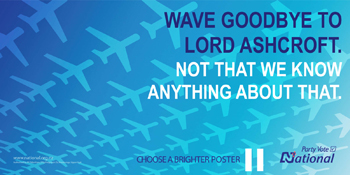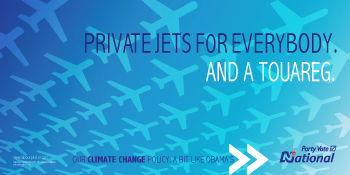What follows might strike some readers as grotesquery. Proceed at your discretion. I have attached to this post some photographs I took this morning at my doctor’s surgery.
I am doing this for two reasons: firstly I am challenging Damian Christie for the trophy Grossest Public Address Photo Ever. Secondly, I find this a useful foundation for a reflection on political language.
Again: you may find this gross. No-one will think the less of you if you leave the room now.
Okay. Now those wimps have gone, let’s look at the pictures.
No-one wants to run their hand across their scalp and feel unsightly lumps. I have been putting up with two of them for years. My doctor told me they were nothing to worry about, just cysts. “Book an appointment some time, and I’ll take them off,” he said.
Let me be clear: past stories may have given readers the sense that I am not man enough to stay upright in a clinical situation. This is not so. I am not a Complete Pussy. I was merely under the misapprehension that the procedure would leave bald patches and for that reason, I assumed that I would have to wait until the procedure would not get in the way of my Friday morning TV appearances.
I mentioned this one day recently, and discovered that I was mistaken. “Oh, no, you’ll be fine. There’s no shaving involved.” he told me. So that was that.
This morning I rolled down to the surgery, took a seat in a chair facing a gurney where I rested my forearms and inclined my head to receive the local anesthetic.
We chatted about Iraq, IEDs, cycleways, ACC, mutual acquaintances, the composition of the epidermis and and the manner in which sebaceous cysts develop.
Scalpel. Incision.
“Oh, these are great,” he enthused, prising away at the first. “You just give them a squeeze and they pop right out.” He prised, it popped, he presented the evidence. I pronounced it most fascinating, perfectly formed, and a surprising colour and texture.
He turned to the second. “Ah, now this one is a different thing altogether,” he said. I was momentarily perturbed, in the manner of a Complete Pussy, but then mollified as he explained the form in which this equally benign piece of matter was constituted. We chatted about a Manawatu farmer who had so toughened his forehead practicing the martial art techniques of post splitting with his head that the doctor had broken two needles trying to administer a local anesthetic.
Out came the second cyst. This was a lympoma; a squishy gelatinous orange glob. I said: It looks like a scallop.
Nurse, may we have the slide please. And the close up. Thank you.
As you can see, these are intrinsically fascinating little bits of humanity, but all things considered, better out than in.
Do you mind if I take a photo? I asked, pulling out my cellphone. “By all means,” he said.
"You should have mentioned it sooner, " he added."We could have taken progress shots.”
I said:I could put this on the blog.
If your lunch is still in place, let me now develop my thesis.
I have been looking at these images and recalling that an old friend, in our youth, called traffic officers sebaceous cysts.
Language embraces the grotesquery of medicine and uses it to marvellous effect for abuse and invective. Pox can be both vicious and comic. That same friend once greeted me on Auckland Cup day, 1986, by looking me up and down in my new wide-shouldered grey suit, matched with emerald green tie and pocket handkerchief, and told me I was all dressed up like a pox doctor’s clerk.
Poxy.
Carbuncle.
With one good medical term you can step in and put the paddles to the most lifeless of sentences. How strange, then, that our political discourse is so vapid; so devoid of the doctors' vivid words.
Perhaps the problem is that the language is so strong, it becomes a writhing firehose in hands not strong enough to get a solid grip.
As much as I consider Geoffrey Palmer to be greatly underestimated by the punters, he could from time to time offer an infelicitous, inappropriate, indecorous expression. He described the Lange/Douglas divorce as the lancing of a boil. It might have been singularly apt, but it was less than lyrical.
Helen Clark chose ‘cancerous', with deliberate intent, to speak of the influence of Don Brash on the body politic and that single word's sheer potency nearly undid her.
Michael Cullen’s language has been so endlessly colourful, and his allusions so expansive, that it seems impossible to believe he hasn’t turned to the physicians from time to time, and yet I can't recall an instance off the top of my head. This may be, however, because there is - now - less there.
My lament is that politicians, whose very business is to bring ideas alive with vivid language, do such a dreary job of it. We might not have the stomach for a Keating who can galvanise the Australian parliament with images of a dog returning to its vomit, but if we could have even a sanitised facsimile of that man contributing to our public life, our politics would be vastly more engaging. Vivid language comes as readily to Keating as exahaling. Crikey reported some time ago that he had been invited to launch a new collection of Australian political writing.
I was more than happy for the piece I wrote for The Sydney Morning Herald and The Age following Howard’s defeat to be included in Tony Jones’ selection but after reading over the manuscript you would not need to be a political scientist to realise that my short piece would be published amid so much dross from other people – Paul Sheehan, Geoffrey Blainey, Glenn Milne, Tom Switzer to name a few – that if all these monkeys turned up to the launch, you’d need to go armed with a hip flask of mace. Of course there are fairer and better minds represented but the flavour of the thing being as it is -- a selection from the political writing of the period -- necessarily reflects the jaundiced journalism that was part and parcel of the Howard years. As for the characters above mentioned, my only interest in them is burying them deep at the political cemetery. So deep, that exhumation becomes beyond all political practicability. Sorry my response is not more encouraging. Regards, Paul Keating.
If Labour are wondering how to compound their restoration in the polls, they could do worse than consider putting some real spine and spirit and imagery in their language. It would stand in the very sharpest contrast to Mr Beige of Success Court, Omaha.






